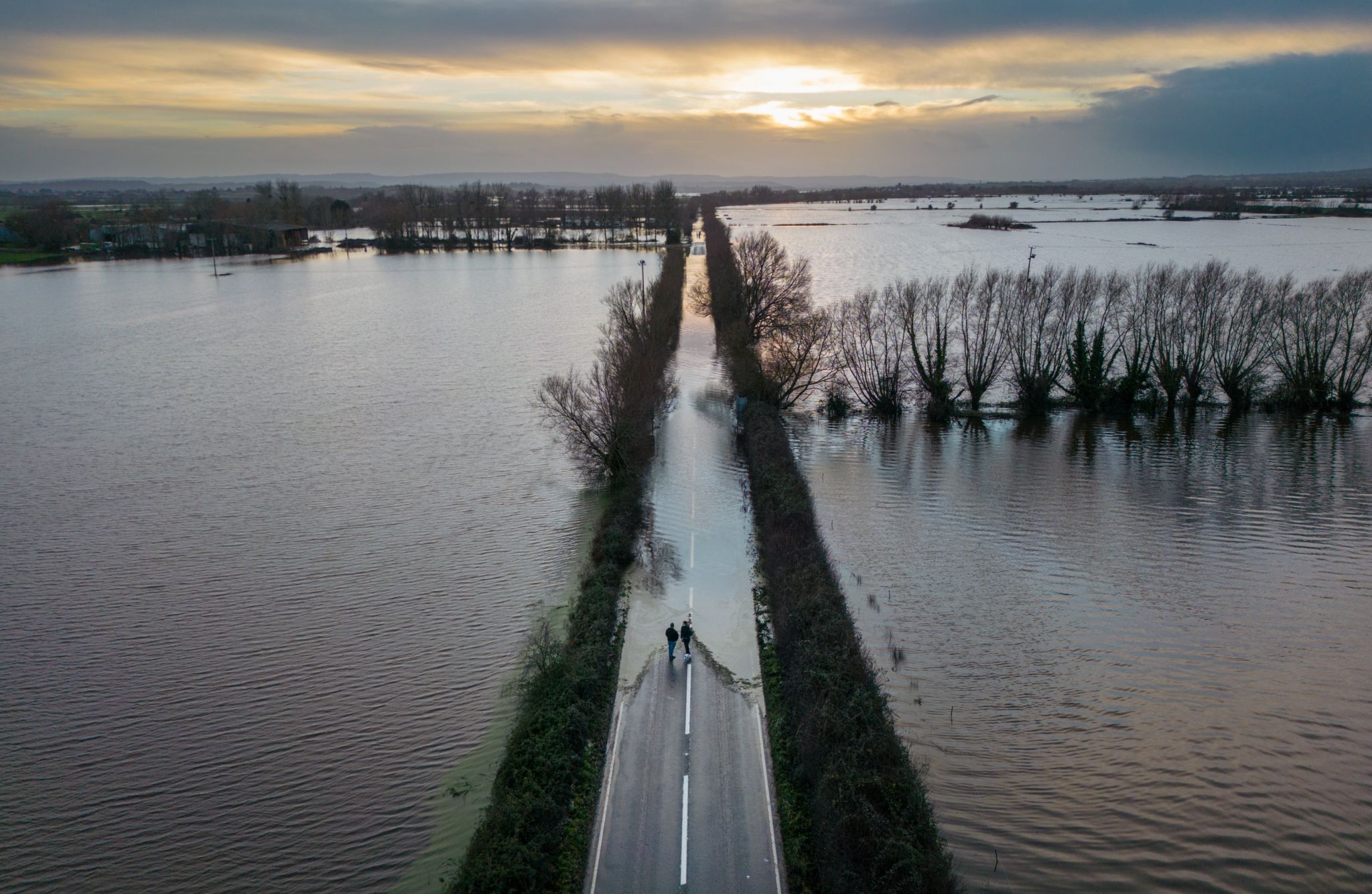ARTICLE AD BOX
 Image source, Getty Images
Image source, Getty Images
Water surrounds the A361 in Somerset. Flooding is becoming more likely because of climate change
By Kate Stephens & Ben Rich
BBC Climate & Science and BBC Weather
Parts of the UK including East Anglia, the Midlands and areas of South Wales have had their wettest February on record, the Met Office is expected to confirm on Friday.
This winter's statistics from the UK's national weather service will also likely show it's been a mild winter with fewer frosty nights than normal.
Data is expected on Friday afternoon.
Farmers say they are losing crops to floods while less frost hurts the growth of trees like apples and pears.
If confirmed, the weather statistics will be in line with long-term projections of warmer, wetter winters due to climate change.
The Met Office collects weather data every day. Before February was even over, that showed that parts of south Wales, the Midlands and Lincolnshire have seen more than two-and-a-half times their normal February rainfall.
The National Farmers' Union (NFU) says some farms in Lincolnshire are still underwater - and have been since October.
"It's rained so many days on the trot that it's just built levels up more and more, and we're already at quite a saturated level," said Met Office meteorologist Annie Shuttleworth,
"It comes at the end of what has been a wet winter season overall," she said. "After December and January we'd already had 90 per cent of the winter rainfall. You'd normally expect to be close to 65% by the end of January."
Some of that rain has come from named storms. There have been six named storms this winter, generated by a powerful jet stream - the flow of winds high in the atmosphere. Many of the storms have been directed across the south of the UK, so central and southern parts have been particularly wet.
Image source, Kate Stephens/BBC
Image caption,A brolly - essential tool of the trade for BBC News Lead Weather Presenter Ben Rich, particularly this winter
Lack of frost
It has also been a mild winter overall - with the lowest temperatures coming in the middle of January. This winter has been "notable for not having too many cold spells" says Met Office climate scientist Dr Mark McCarthy. "That's apparent in the number of days of frost we've had this winter. It might come out to be one of the least frosty winters in our historical records."
And this fits with long term trends. In the last 50 or 60 years the world's climate has warmed by 1C. "If we're talking about frosts," says Dr McCarthy, "that 1C of warming is equivalent to about three weeks' fewer frosts over the course of the year."
Cumbria and Edinburgh now see the same number of frosts in an average year as Sussex and Kent did 50 years ago.
Fewer frosts might sound like a good thing - less scraping ice off the car, for instance - but for some plants it's not such good news - and it could even have an impact on the food we eat.
Image source, Getty Images
Image caption,Frost - a rarer sight this winter
Joe Richomme is the head of the kitchen garden at Kew Gardens in west London. He says frost is an essential part of the growth cycle of apple trees "particularly with traditional varieties, which need more of what we call chill hours - hours in the year where it's between zero and six degrees."
"If they don't get enough, they can produce less fruit buds, which later in the year will lead to less fruit, or perhaps even no fruit at all."
British grown apples aren't likely to leave our supermarket shelves completely.
Some of the most commonly sold breeds like Gala and Jazz have been bred to need fewer chill hours. But some traditional British types are at risk of eventually disappearing from orchards.
Will we ever see a cold winter again?
Even as the climate warms overall, there will still be extremes of warm and cold weather.
As Dr Mark McCarthy puts it: "One common analogy is that the weather is what you choose to wear that day, and the climate is what's in your wardrobe. In other words, we'll still pull cold weather out of the "wardrobe" sometimes - but there are more warm weather "clothes" to choose from overall."
In fact, one of the defining features of our weather this winter has been its dramatic transitions from cold to unseasonably warm conditions.
Northern Scotland had both the UK's highest and lowest temperatures this winter, all within the space of just 11 days - with a minimum of -14C and a high of 19.9C. That high was in fact a new January record for the entire UK.
Annie Shuttleworth adds: "On average you're going to experience more warmer winters and more wetter winters - but you won't not see any cold weather. You need to prepare for both extremes. It's just more likely going to be warmer and wetter than cold and dry."
At Kew Gardens they're working hard to prepare for future wet and warm winters.
Tom Freeth is the head of plant records. "I've performed a complete assessment on all of our all of our big old plants, all of our woody plants" says Tom Freeth, the head of plant records. "We know which ones are vulnerable in certain scenarios and which ones we've got that might be resilient.
"So we can make a plan. If we plant something tomorrow, if we have done our job it will be alive in 2100."

 10 months ago
47
10 months ago
47








 English (US) ·
English (US) ·